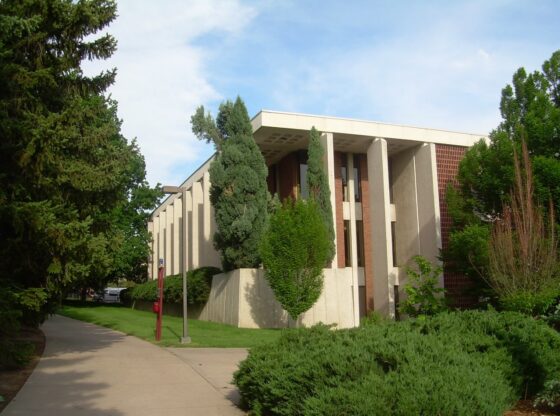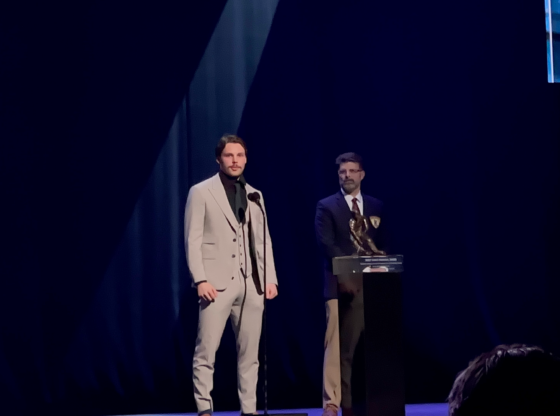This week, Capitol Hill is awash in “enlibra.” The word became an overnight sensation after Utah Gov. Mike Leavitt was nominated to head the Environmental Protection Agency. Invented by Leavitt a few years ago, the pseudo-Latin term is supposed to refer to a new approach to environmental regulation, an effort to “bring balance” in the use of our natural resources.
Not since Viagra has a new marketing term so captivated our elected representatives. Enlibra, however, is more than a brilliant form of political marketing. It is a new way of repackaging policy to make a governor’s pro-pollution measures seem as hip and trendy as ordering a double-espresso macchiato at Starbucks.
Though enlibra sounds like some ancient principle derived from Caesar Augustus, its origins can be traced to a meeting a few years ago in the Utah governor’s office.
According to one former staffer who attended the meeting, Leavitt came into the room and said, “Let’s invent a word. Let’s invent a word that means balance and reasonableness in environmental debate.”
The result was enlibra — the type of trendy term that could promise a better night’s sleep, better sex or, in this case, a “balanced” environmental policy. It may be the first manufactured political trademark.
In creating the term, Leavitt was taking a lesson from Reuben Mattus.
Mattus was a Polish immigrant trying to make his way on the tough streets of the Bronx by selling ice cream. In 1959, close to bankruptcy because of weak sales, Mattus came up with a brilliant idea. He took his slow-selling ice cream and gave it an invented name that suggested something foreign and exotic: Haagen-Dazs.
What Mattus discovered is that when the same ice cream was given this Scandinavian-sounding name, people could not have enough. It actually enhanced their eating experience.
Enlibra was born of similar marketing needs. Leavitt found that the phrases “dirty air for higher corporate profits” or “fewer trees mean more roads” were not instant sellers.
However, calling for enlibra was something that few could contest — or understand, for that matter. If anyone objected, Leavitt would simply respond with an element of sympathy that they simply did not understand enlibra. They were “unenlibrated.”
With hearings coming up on Leavitt’s nomination, enlibra has been heard as a noun (“this is precisely the purpose of enlibra”), a verb (“to what extent can federal regulations be ‘enlibraed’ like state regulations”) and an infinitive (“to enlibra environmental laws, we need more than rhetoric”). The word has even been used as a new term of association: “I am an ‘enlibran.’ ”
Enlibra can make even the most thuggish and anti-environmental measures seem progressive and New Age. State biologists in Utah were not “fired” for listing endangered species for protection, but merely enlibrated out of their jobs. Likewise, when Leavitt helped strip citizens of their right to sue hog facility operators for massive spills of manure, he was merely bringing a little enlibra into their lives. In opening up wilderness to development and racking up one of the worst clean-water records in the nation, he was merely realizing the “balance” promised by enlibra.
The creation of enlibra has been such a success that we can expect an avalanche of new government philosophies. John Ashcroft could coin “enlibertas,” the seeking of “more balance” between civil liberties and authoritarian power.
Despite the enlibra revolution, there remain those misguided souls who resist “enlibrafication.” For example, Greenpeace Director John Passacantando has criticized Leavitt’s record and noted that Leavitt’s own family’s fish farm was cited for serious water violations. Yet the allegation that Leavitt was a source for “whirling disease” in Utah fish misses the point: There is now “balance” between crippled and noncrippled fish in Utah.
For my part, I never resist a trend. With the expected confirmation of Leavitt, I intend to join other New Age Bush environmentalists and watch the bulldozers putting in new roads through our wilderness areas — a common goal of Leavitt’s enlibra policy.
Of course, in our new lexicon, they are not bulldozers but “enlibrator” building “enlib-roads.” For those attending, Haagen-Dazs will be served.












